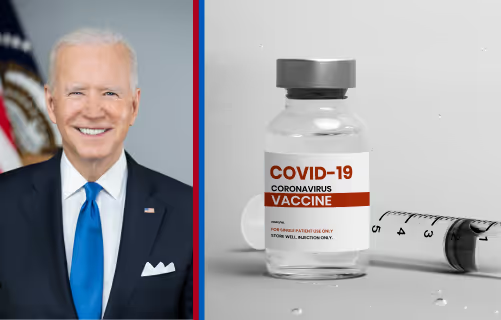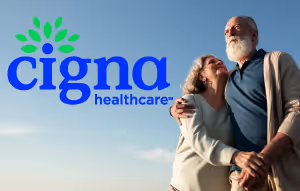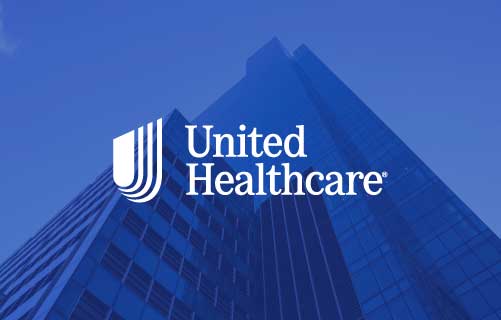



Biden Administration Continues Efforts to Increase Vaccinations by Bolstering Payments for At-Home COVID-19 Vaccinations for Medicare Beneficiaries
As part of President Biden’s commitment to increasing access to vaccinations, CMS announced an additional payment amount for administering in-home COVID-19 vaccinations to Medicare beneficiaries who have difficulty leaving their homes or are otherwise hard-to-reach. This announcement further demonstrates continued efforts of the Biden-Harris Administration to meet people where they are and make it as easy as possible for all Americans to get vaccinated. There are approximately 1.6 million adults 65 or older who may have trouble accessing COVID-19 vaccinations because they have difficulty leaving home.
While many Medicare beneficiaries can receive a COVID-19 vaccine at a retail pharmacy, their physician’s office, or a mass vaccination site, some beneficiaries have great difficulty leaving their homes or face a taxing effort getting around their communities easily to access vaccination in these settings. To better serve this group, Medicare is incentivizing providers and will pay an additional $35 per dose for COVID-19 vaccine administration in a beneficiary’s home, increasing the total payment amount for at-home vaccination from approximately $40 to approximately $75 per vaccine dose. For a two-dose vaccine, this results in a total payment of approximately $150 for the administration of both doses, or approximately $70 more than the current rate.
“CMS is committed to meeting the unique needs of Medicare consumers and their communities – particularly those who are home bound or who have trouble getting to a vaccination site. That’s why we’re acting today to expand the availability of the COVID-19 vaccine to people with Medicare at home,” said CMS Administrator Chiquita Brooks-Lasure. “We’re committed to taking action wherever barriers exist and bringing the fight against the COVID-19 pandemic to the door of older adults and other individuals covered by Medicare who still need protection.”
Delivering COVID-19 vaccination to access-challenged and hard-to-reach individuals poses some unique challenges, such as ensuring appropriate vaccine storage temperatures, handling, and administration. The CDC has outlined guidance to assist vaccinators in overcoming these challenges. This announcement now helps to address the financial burden associated with accommodating these complications.
The additional payment amount also accounts for the clinical time needed to monitor a beneficiary after the vaccine is administered, as well as the upfront costs associated with administering the vaccine safely and appropriately in a beneficiary’s home. The payment rate for administering each dose of a COVID-19 vaccine, as well as the additional in-home payment amount, will be geographically adjusted based on where the service is furnished.
How to Find a COVID-19 Vaccine:
As this action demonstrates, a person’s ability to leave their home should not be an obstacle to getting the COVID-19 vaccine. As states and the federal government continue to break down barriers – like where vaccines can be administered – resources for connecting communities to vaccination options remain key. Unvaccinated individuals and those looking to assist friends and family can:
- Visit vaccines.gov (English) or vacunas.gov (Spanish) to search for vaccines nearby
- Text GETVAX (438829) for English or VACUNA (822862) for Spanish for near-instant access to details on three vaccine sites in the local area
- Call the National COVID-19 Vaccination Assistance Hotline at 1-800-232-0233 (TTY: 1-888-720-7489) for assistance in English and Spanish
Coverage of COVID-19 Vaccines:
The federal government is providing the COVID-19 vaccine free of charge or with no cost-sharing for all people living in the United States. As a condition of receiving free COVID-19 vaccines from the federal government, vaccine providers cannot charge patients any amount for administering the vaccine.
Because no patient can be billed for COVID-19 vaccinations, CMS and its partners have provided a variety of information online for providers vaccinating all Americans regardless of their insurance status:
- Original Medicare and Medicare Advantage:Beneficiaries with Medicare pay nothing for COVID-19 vaccines or their administration, and there is no applicable copayment, coinsurance or deductible.
- Medicaid and the Children’s Health Insurance Program (CHIP):State Medicaid and CHIP agencies must cover COVID-19 vaccine administration with no cost sharing for nearly all beneficiaries during the COVID-19 Public Health Emergency (PHE) and for over a year after it ends. For the very limited number of Medicaid beneficiaries who are not eligible for this coverage (and do not receive it through other coverage they might have), providers may submit claims for reimbursement for administering the COVID-19 vaccine to underinsured individuals through the COVID-19 Coverage Assistance Fund, administered by the Health Resources and Services Administration (HRSA), as discussed below. Under the American Rescue Plan Act of 2021 (ARP), signed by President Biden on March 11, 2021, the federal matching percentage for state Medicaid and CHIP expenditures on COVID-19 vaccine administration is currently 100% (as of April 1, 2021), and will remain 100% for more than a year after the COVID-19 PHE ends. The ARP also expands coverage of COVID-19 vaccine administration under Medicaid and CHIP to additional eligibility groups. CMS recently updated the Medicaid vaccine toolkit to reflect the enactment of the ARP at https://www.medicaid.gov/state-resource-center/downloads/covid-19-vaccine-toolkit.pdf.
- Private Plans: The vaccine is free for people enrolled in private health plans and issuers COVID-19 vaccine and its administration is covered without cost sharing for most enrollees, and such coverage must be provided both in-network and out-of-network during the PHE. Current regulations provide that out-of-network rates must be reasonable as compared to prevailing market rates, and the rules reference using the Medicare payment rates as a potential guideline for insurance companies. In light of CMS’s increased Medicare payment rates, CMS will expect health insurance issuers and group health plans to continue to ensure their rates are reasonable when compared to prevailing market rates. Under the conditions of participation in the CDC COVID-19 Vaccination Program, providers cannot charge plan enrollees any administration fee or cost sharing, regardless of whether the COVID-19 vaccine is administered in-network or out-of-network.
The Biden-Harris Administration is providing free access to COVID-19 vaccines for every adult living in the United States. For individuals who are underinsured, providers may submit claims for reimbursement for administering the COVID-19 vaccine through the COVID-19 Coverage Assistance Fund administered by HRSA after the claim to the individual’s health plan for payment has been denied or only partially paid. Information is available at https://www.hrsa.gov/covid19-coverage-assistance.
For individuals who are uninsured, providers may submit claims for reimbursement for administering the COVID-19 vaccine to individuals without insurance through the Provider Relief Fund, administered by HRSA. Information on the COVID-19 Claims Reimbursement to Health Care Providers and Facilities for Testing, Treatment, and Vaccine Administration for the Uninsured Program is available at https://www.hrsa.gov/CovidUninsuredClaim.
More information on Medicare payment for COVID-19 vaccine administration – including a list of billing codes, payment allowances and effective dates – is available at https://www.cms.gov/medicare/covid-19/medicare-covid-19-vaccine-shot-payment.
More information regarding the CDC COVID-19 Vaccination Program Provider Requirements and how the COVID-19 vaccine is provided through that program at no cost to recipients is available at https://www.cdc.gov/vaccines/covid-19/vaccination-provider-support.html.
Questions? Call us at 855-888-8326.
Don't have a MedicareValue page yet?
Get Your FREE Site >Posts you may be interested in...
 Read More
Read MoreMeet your California Broker Channel Manager: Sandy Wang
Meet your new Broker Channel Manager in California!
 Read More
Read MoreNew business technology is on the way for brokers!
These changes include a new contracting system for all brokers/agents, and a new commissions experience for MA/PDP users.
 Read More
Read MoreHighmark Important Updates: Medigap, SSBCI, and Delaware D-SNP Information
Medigap, SSBCI, and Delaware D-SNP Information
 Read More
Read MoreExtend Your Molina Selling Season to December 31!
AEP is coming to a close, but the Integrated Care SEP* can still be used
 Read More
Read MoreUnitedHealthcare: JarvisWRAP for December 1
AEP support, UCard shipments and SSBCI verification
 Read More
Read MoreCigna Broker Insights: November 2025 - Edition 11.2
Broker Insights: The newsletter for all Medicare brokers - 11.2
-01.png)
Who we are & what we do.
Choosing an FMO to work with is not just about having access to top insurance products and commissions, it’s about finding a one-on-one agent service that is prepared to meet your needs.
Get to know us, and see how we can help you take your business to the next level.

.svg)








